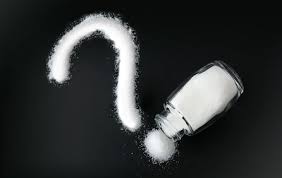 The many years of warnings about Americans eating too much salt, and the recommendation by the American Heart Association and many others that we take no more than 1,500 milligrams of sodium a day, or a little more than half a teaspoon of salt, are being tossed over shoulders by a new expert committee commissioned by the Institute of Medicine at the behest of the Centers for Disease Control and Prevention. Why? Because that group has determined that there is not enough data about the health of people who eat less than 2,300 milligrams of salt a day to describe any benefit. In fact, as Gina Kolata reports in the New York Times, there may a downside to downsizing salt. Kolata cites a study published in 2011 that followed 28,800 subjects with high blood pressure ages 55 and older for 4.7 years and analyzed their sodium consumption by urinalysis. The researchers reported that the risks of heart attacks, strokes, congestive heart failure and death from heart disease increased significantly for those consuming more than 7,000 milligrams of sodium a day and for those consuming fewer than 3,000 milligrams of sodium a day. Read more in the New York Times.
The many years of warnings about Americans eating too much salt, and the recommendation by the American Heart Association and many others that we take no more than 1,500 milligrams of sodium a day, or a little more than half a teaspoon of salt, are being tossed over shoulders by a new expert committee commissioned by the Institute of Medicine at the behest of the Centers for Disease Control and Prevention. Why? Because that group has determined that there is not enough data about the health of people who eat less than 2,300 milligrams of salt a day to describe any benefit. In fact, as Gina Kolata reports in the New York Times, there may a downside to downsizing salt. Kolata cites a study published in 2011 that followed 28,800 subjects with high blood pressure ages 55 and older for 4.7 years and analyzed their sodium consumption by urinalysis. The researchers reported that the risks of heart attacks, strokes, congestive heart failure and death from heart disease increased significantly for those consuming more than 7,000 milligrams of sodium a day and for those consuming fewer than 3,000 milligrams of sodium a day. Read more in the New York Times.
